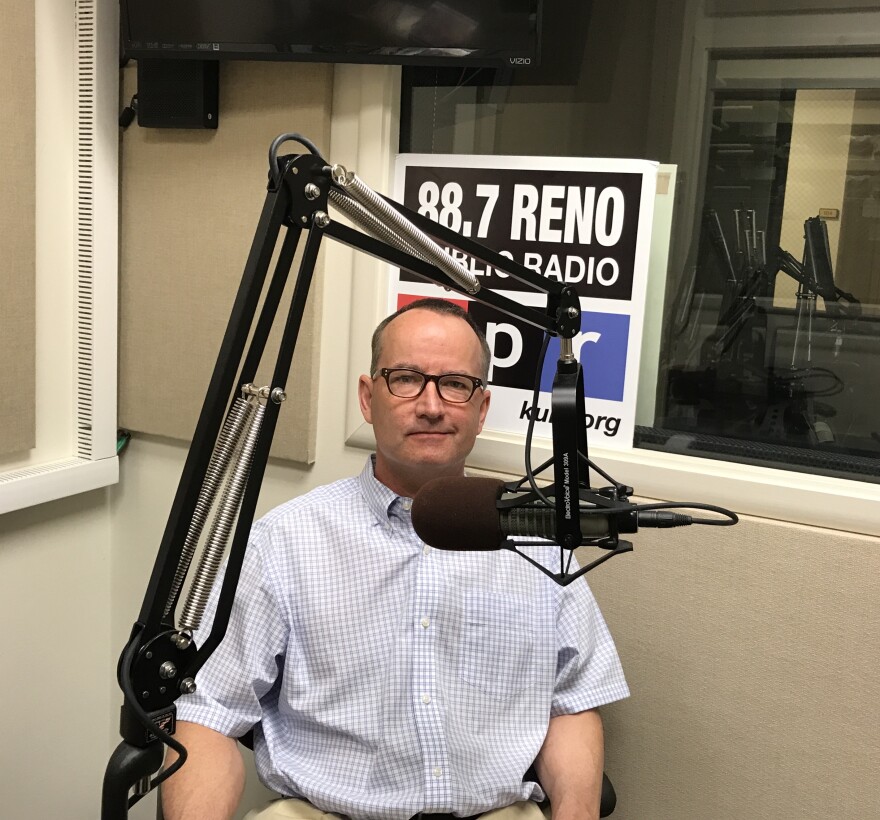Senate Republicans have recently unveiled their plan to repeal and replace the Affordable Care Act. The health care bill is officially known as the Better Care Reconciliation Act. Voting on this proposed bill is expected later this week. Reno Public Radio’s Anh Gray sat down with health policy expert John Packham to learn what this legislation could mean for Nevadans. Packham is the Director of Health Policy Research at the University of Nevada, Reno School of Medicine.
Last month, House Republicans passed their health care bill. What are the key differences proposed in the Senate Republican’s version released last week?
I actually feel like there’s very few substantive differences between the House version and the Senate version, which was released last week. In my humble opinion, both destroy the village in order to save it, and in this case, in an attempt to fulfill promises made by congressional Republicans and the president for years—that have finally caught the proverbial dog—in repealing the Affordable Care Act. I think that this proposed legislation lives up to those aims but there’s no replacement in this that will safeguard the insurance coverage gains made by millions of low-and middle-income Americans and hundreds of thousands of Nevadans.
For critics of the Senate bill, a big concern is the federal Medicaid funding cuts. More than 200 thousand in Nevada have received coverage through Obamacare’s expansion of Medicaid. How will those funding cuts affect Nevadans?
Well, it would basically undo the expansion. Prior to the Affordable Care Act, [Medicaid] is an important program that served not only low-income Nevadans, it’s a key form of funding and reimbursement for long-term care in this state. About two-thirds of Nevadans who rely on nursing homes and hospital-based nursing homes in rural areas are Medicaid patients. And so any impacts will have ripple effects, not only for those who’ve gained coverage over the last couple of years, but the aged, the disabled.
Aside from changes to Medicaid, what do you think of other changes proposed by the Senate Republican health bill?
The Senate version of reform would eliminate funding for the Prevention of Public Health Fund. That’s about 12 percent of the CDC budget, and very important public health dollars that come to this state for things like immunizations and infectious disease surveillance. It also withdraws funding from Planned Parenthood for a year, which would have, frankly, devastating impacts and access to family planning services at a time in which we made steady progress in reducing problems like teen pregnancy. Those types of cuts will have an impact and they will generate more health care costs.

Supporters of the senate bill say their version would stabilize insurance markets and cut health care costs. What are your thoughts?
It’s completely unclear how that would take place. The individual and employer mandates have been kind of a lynchpin of how we expand coverage through private health insurance for low-income individuals, employees of small to medium-sized businesses. And without that mandate, or requirement, there’s a selection process that takes place, in which only the sick purchase health insurance and the healthy forgo that until they become sick. So it sounds good on paper, but it’s unclear how that will lead to more market stability.
At a press conference last Friday with Governor Brian Sandoval, Republican Senator Dean Heller announced he isn’t planning to vote for the senate health care bill, stating this bill that’s currently in front of the United States Senate is not the answer. So, Heller has been and will be receiving pressure from both Democrats and Republicans. Do you think he’ll stick with voting no later on this week or do you think that Senate Majority Leader Mitch McConnellhas a chance of convincing Heller to change his vote?
I think there will be a lot of horse trading; I think there will be a lot of negotiations. I wouldn’t hazard a guess on how Senator Heller will vote. I think it’s important to the extent that Senate leaders like Mitch McConnell attempt to accommodate moderates like Heller on various aspects, including the Medicaid expansion; he’s going to upset those on the right flank of the Republican party, who say that the current bill doesn’t go far enough in its dismantling of taxes and mandates. So it’s going to be a delicate dance.







